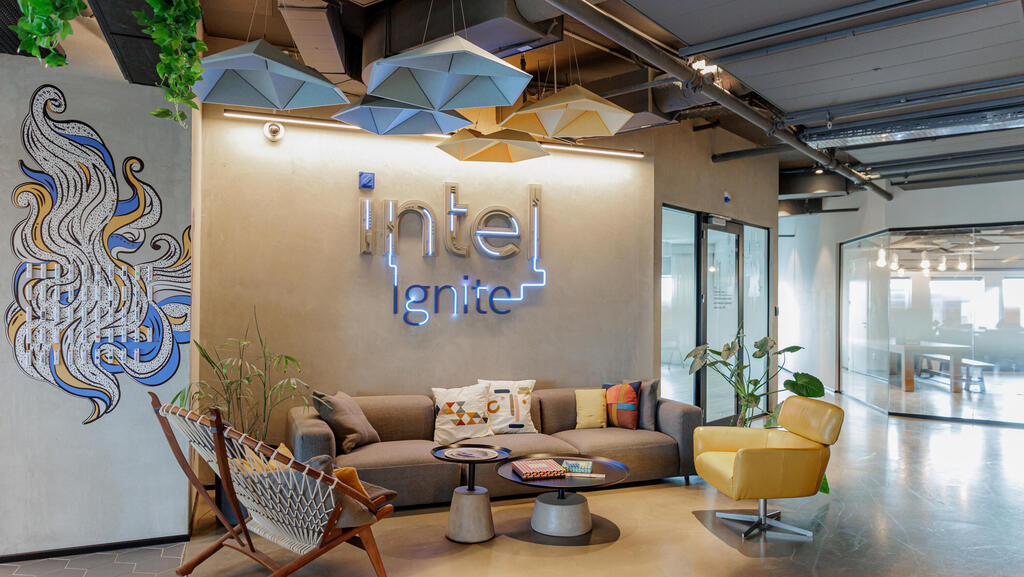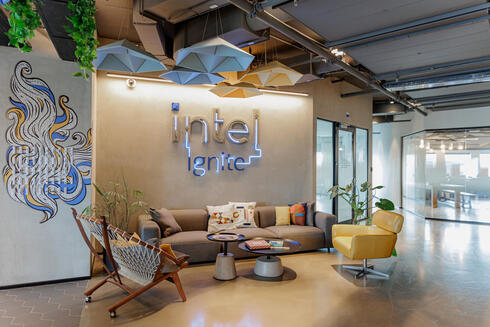
Opinion
Intel’s startup accelerator shuts down when entrepreneurs need support more than ever
"Unlike other accelerator programs that have an interest in serving those behind the program, Intel Ignite did not push startups in a different direction, and the support provided to entrepreneurs followed the path they chose," writes Itamar Friedman, co-founder & CEO of Qodo, and an Intel Ignite alumni.
The startup accelerator program Intel Ignite is being shut down, and we cannot afford to have such a vacuum in the Israeli ecosystem. Israel has positioned itself as a startup nation, and the Israeli economy is largely relying on the high-tech industry—the engine of the economy. But in a world where global competition among tech companies is becoming increasingly fierce, it is necessary to help entrepreneurs create an advantage over their overseas competitors. This is where startup accelerator programs come into play, providing companies with the necessary support to overcome technological and business challenges and compete in international markets. The problem is that there are hardly any such programs that are essential for the Israeli ecosystem.
I am a serial entrepreneur who co-founded two startup companies. The first venture I co-founded was sold to the Alibaba Group. After leaving Alibaba and founding the second venture, I participated in the Intel Ignite program. The reason I joined such a program, even as an experienced serial entrepreneur who had already brought a startup to an exit, was the significant value the program provides to entrepreneurs and their ventures. As evidence, to date, we have raised $50 million in investments for the company.
Due to organizational changes at Intel, the Intel Ignite accelerator program, which was a significant milestone for our company, will be shut down. The program launched in Tel Aviv and expanded to Europe, the U.S., and the UK. The program boasts an impressive Israeli portfolio of 88 companies with an accumulative worth of over $5.5B. Among the successful Israeli startups that emerged from it are the exits of Deci, sold for $300M to NVIDIA; Flow Security, sold for $200M to CrowdStrike; Qwak, sold for $230M to JFrog; Granulate, sold for $650M to Intel; Speedb, sold to Redis; Oxeye, sold to GitLab; Helios, sold to Snyk; and others.
Related articles:
The secret to these outstanding successes lies in the fact that, unlike other accelerator programs that have an interest in serving those behind the program, Intel Ignite did not push startups in a different direction, and the support provided to entrepreneurs followed the path they chose. Additionally, as always in the startup world, everything depends on the people. The team that ran Intel Ignite are former entrepreneurs themselves, which allowed them to approach the challenges of building startups from a perspective that only someone who has experienced it firsthand would know how to address. The program, like many others, provided tools for managing sales, marketing, and financial knowledge. The process of achieving product-market fit (PMF)—everyone knows it is necessary, but how do you get there? That is a more difficult question that Intel Ignite helped answer. The uniqueness also lay in the "soft" and often unspoken areas, such as coping with mental challenges and stress management, workshops for the spouses of entrepreneurs to create a balanced family life, and cultural impact before launching sales in the U.S. through activities like a golf workshop in Caesarea, where participants learned how to "speak American" rather than just English, along with all the associated customs.
Eventually, everything depends on the entrepreneurs and the team, but external support and the ecosystem can be very significant. Imagine the support that startups receive in the Valley—we need something different but equally strong, if not stronger, here in our own "Wadi." Therefore, to close the gap for the Israeli side in global competition, in an era where AI is pushing the entire world to progress faster in software development than ever before, we need robust local support.
It is essential to ensure that guidance and support for startups in the new world are provided, and to assist entrepreneurs through accelerator programs like the ones we experienced. Currently, with the closure of Intel Ignite, there are no alternatives in the market for entrepreneurs, and the startup industry, where the odds of success are against entrepreneurs, cannot be left without a program that enables Israeli startups to gain an edge in competing in the global market.
Itamar Friedman is the co-founder & CEO of Qodo, and an Intel Ignite alumni

